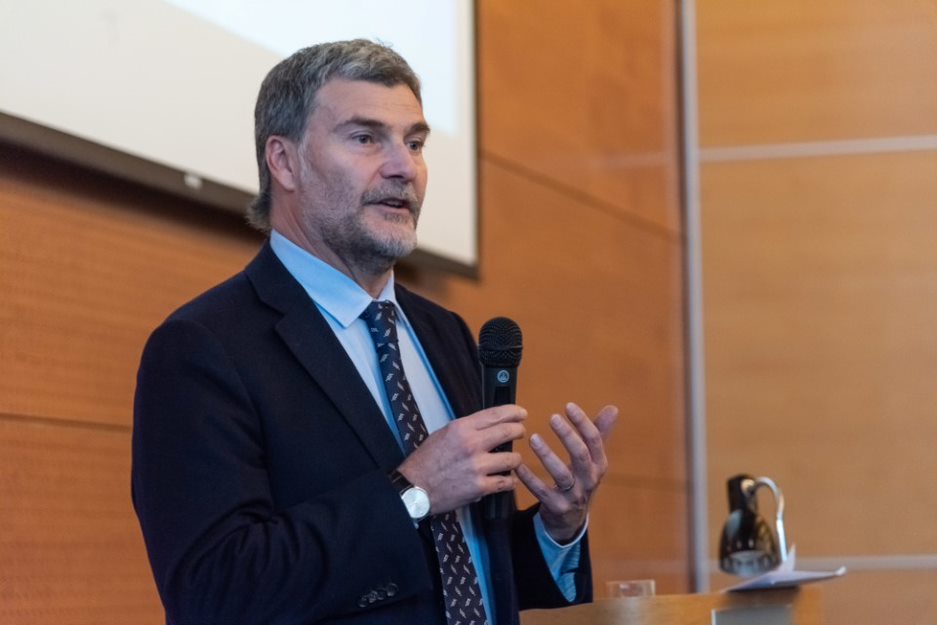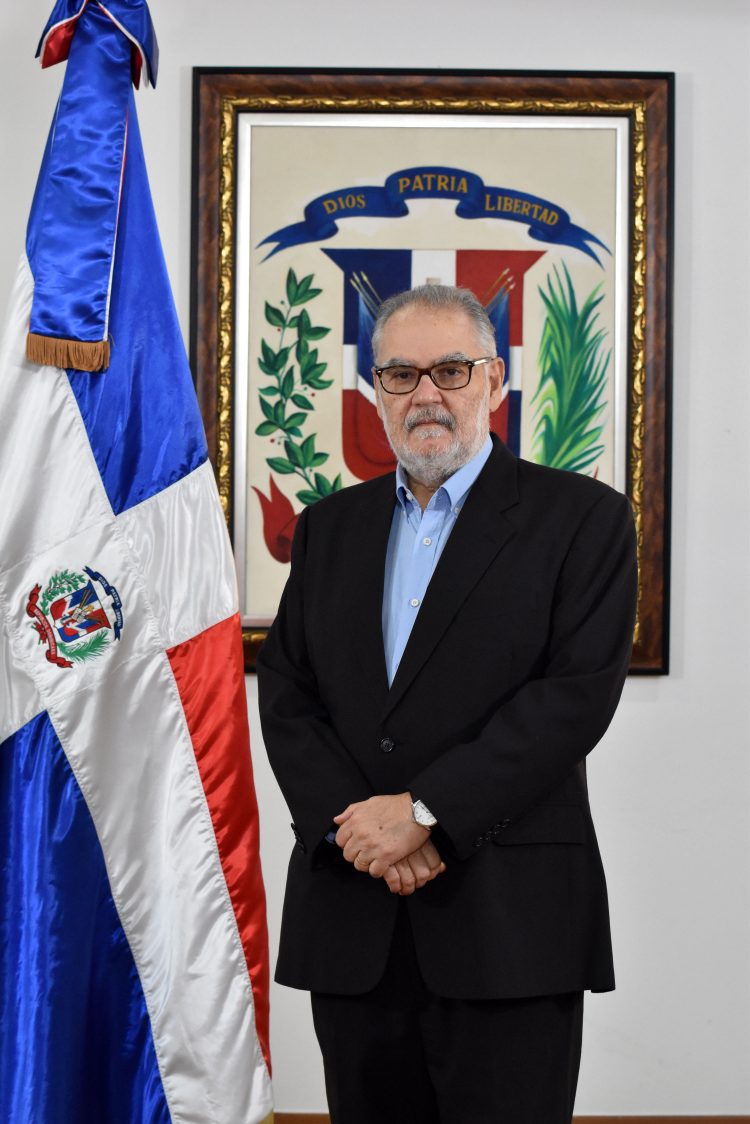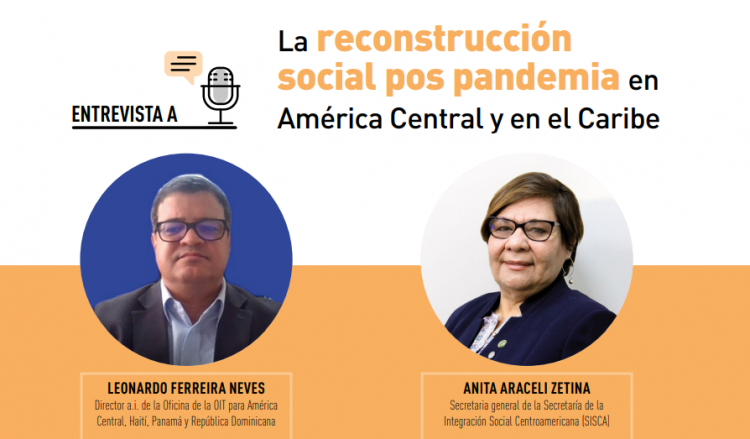Migration in Latin America and Europe is a hot topic from the point of view of human rights and access to justice. Recíprocamente interviewed Andrés Mahnke Malschafsky, National Ombudsman of Chile, who gave us his view from Latin America in this section. Followed by a second part in which Victoria Ortega, President of the General Council of Spanish Lawyers, gives us her view from Europe.

What are the main difficulties/obstacles facing migrants in the assertion of their rights in Latin America?
Migrants are in an asymmetric position with respect to those who are nationals of a country, which makes them a vulnerable group. The main asymmetry is related to access to information, as a general concept. In some contexts, as in the Chilean case, for example, this asymmetry is accentuated by the socio-economic profile of the migrant population. These are generally people with very limited financial resources. That said, the lack of information plays a fundamental role, since these people often depend entirely on the benefits provided by the State in order to be able to access different rights. In this sense, language, cultural barriers and stereotypes tend to be presented as insurmountable difficulties for the migrant population. Consequently, access to justice, from a comprehensive perspective, is more difficult for a foreigner, who also often lacks support and roots networks.
What are the main challenges facing the institutions of the justice system in responding to the demands of this vulnerable group?
The justice system usually places additional barriers on any person. The need to hire a professional to be able to appear in court demonstrates this. In this sense, the system already has certain complexities. The presence of groups in vulnerable conditions can accentuate these barriers and lead to the denial of justice. The main challenges for institutions therefore lie on two paths, namely: (i) material and (ii) theoretical.
By material, I mean all those tools that specify the provision of an efficient service for this group. A classic example is the need for trained translators to assist people who do not speak the same language. To this, we can add the presence of other social science professionals who can assist the people involved in the system in social terms.
On the other hand, by theoretical I mean the need to train the system’s officials. Knowledge of domestic law is not enough, but rather it is essential to include the development of standards of international human rights law, as well as international humanitarian law when it comes to refugees or stateless persons. Understanding criminal law, for example, but in harmony with the immigration laws of each country, is also essential for those who play a role in the justice system.
What legislative reforms and/or measures/policies/programmes have been adopted in your country to make migrants’ right of access to justice effective? What impact is it having?
In terms of access to justice, there is no firm public policy to satisfy this right; our country is lacking in legislation and politics in general. The reforming of Labour Directive 1094 of 1975 is claimed from all areas, due to its lack of relevance to modern migratory phenomena. In this context, what we have are sector initiatives that seek to fulfil the standards established by international law. Hence, two lines of action can be highlighted. The first is specialised public defence for migrants, which has allowed many people to receive attention that not only considers the criminal aspects derived from a process of this nature, but also the administrative consequences that follow.
The second refers to the Inter-institutional Board for Access to Justice for Migrants and Foreigners, an authority that brings together the Public Prosecutor’s Office, the National Institute of Human Rights, the Ministry of Foreign Affairs, the Ministry of Justice and Human Rights, the Investigative Police, the Carabineros and the Public Criminal Ombudsman and in which various documents have been prepared for daily use in the criminal system, together with the creation of a system of foreigner detention notifications and the preparation of the Statistical Bulletin on the matter that gathers information on foreign detainees and victims in Chile.
What national/regional coordination mechanisms exist in Latin America in this area?
At the regional level, official migrant coordination authorities exist. These may be state-level, such as Mercosur, which establishes certain rules for safeguarding the rights of national migrants from the countries signing the pact. There are also coordination authorities at the level of regional bodies such as the OAS.
There is also coordination at the level of the region’s police forces and prosecutors to pursue crimes such as human trafficking.
At the national level, there is coordination to safeguard the rights of migrants, which may be at state or civil society level. Among the former is the aforementioned Inter-institutional Board for Access to Justice for Migrants and Foreigners, but also inter-institutional coordination between the police, the Public Prosecutor’s Office and the NHRI, for the persecution of the crime of migrant or human trafficking. There is also coordination between State organs to guarantee the rights of migrants arrested in order to be expelled. The Ministry of the Interior, the Gendarmerie, the Investigative Police and the Judiciary participate in this coordination to ensure that the expulsion processes are agile and fast in order to avoid long custody periods, which favour infringement of other rights.
In the field of civil society, there is coordination between institutions that perform activities to defend the rights of migrants, in which that made up of the Legal Clinic for Attention to Migrants of the Faculty of Law of the Alberto Hurtado University / Migrant Action Movement (MAM) / Citizen Observatory / Jesuit Migrant Service / Legal Clinic for Attention to Migrants and Refugees of the Diego Portales University / Corporación Migr-Acción / the Migramigos NGO / and the Chair of Racisms and Contemporary Migrations of the University of Chile stands out. This structure defends individual cases, but also seeks to influence immigration policy. They recently participated in a hearing at the Inter-American Commission on Human Rights where the immigration policy of the Chilean State was reviewed, in which these institutions expressed their concern about various aspects of government activity that threatened migrant rights.
What experiences or good European or Latin American practices could be highlighted in the field of migrant right protection and defence?
At the Latin American level, there is a growing current that looks at the migratory phenomenon with a Human Rights focus and that has allowed the creation of various previously non-existent authorities. At an academic level, legal clinics relating to migration have been created, which has allowed migrants to get legal advice. In the public services, I would mainly highlight that the Public Criminal Ombudsman of Chile in 2012 created a line of defence specialised in this area, which has allowed the continuous training and education of ombudsmen in this matter. From this organic base, support protocols have been developed for this group of people with the support of EUROsociAL, such as the Protocol of Support for Indigenous Women, foreigners deprived of freedom in 2014 and the Model for Criminal Defence of Foreigners and Migrants of 2018. All this adds to the internal work of the Public Criminal Ombudsmen with the preparation of case law reports, the preparation of the Manual of Minimum Actions and the participation of the Inter-institutional Board, to name but a few of the most relevant milestones.
What impact do you think guaranteeing the rights and access to justice of migrants can have on social cohesion and on reducing inequality gaps?
Bearing in mind that countries generally tend to prioritise their sovereign power to determine their migration policies over assuring migrants the protection of their rights, guaranteeing access to justice for the migrant population can have an exponential impact. These are groups that are often discriminated against in the satisfaction of certain economic, social and cultural rights, with the only alternative being the judiciary. With regard to massive human mobility phenomena, certain civil and political rights have also been strongly threatened, so the courts of justice play a key protective role in full adherence to them. It also allows any migrant, regardless of their purchasing power, to receive judicial protection if their rights are affected. This is a clear example of how access to justice can impact on reducing inequality gaps.
The various conventions on migration policy prioritise legal migration, and access to justice allows more foreigners access to legality. If they have the opportunity of exercising jurisdictional actions and of defending their rights institutionally; and if these rights are adhered to by the institutions as strongly as for nationals, there should be fewer illegal migrants, and more foreigners brought into society.
The media have a relevant impact on the way we perceive immigrants. The media have generated a negative perception of immigrants, and often “victimise or criminalise immigrants”. Most studies on this matter show the approach and the dehumanising nature of news on immigration, which is usually presented in terms of numbers and not of people, in terms of economic interests and not contributions to the economy of the receiving countries.
Is there a need for greater dissemination and awareness of migrant rights? What measures/strategies could be adopted to improve perception of this issue?
The first thing is to assume that above approach to the matter is true, since all the existing evidence agrees with this current bias in the public perception of our country, which, based on established prejudices, excessively blames migrants for the committing of crimes.
In fact, although foreigners living in Chile account for 6.6 percent of the population, in 2018 the Ombudsman defended 9,445 accused people of other nationalities, which represented only 2.9 percent of the total number of detainees in the period. This shows that the percentage of migrants involved in crime is even lower than that of Chileans themselves, and therefore there is no direct causal relationship between crime and migration.
Furthermore, of the total arrests made by the Carabineros nationwide in 2018, only 5 percent involved foreigners, in a context in which one in four of those procedures affected people caught practising street trade.
If we try to contextualise this bias, it must be said that it operates integrally with respect to the public perception of crime and connects or adds specific factors of prejudice regarding young people, indigenous people and other particularly vulnerable groups. Chilean society thus lives in a permanent dissociation that is not reflected in reality.
There is also little information on the rights of migrants and, therefore, that same ignorance means that sometimes people believe that as foreigners they have fewer rights than the national population. This conception, deeply rooted in certain circles, affects social cohesion and can become a serious threat to the existence of these groups.
For example, the last National Urban Survey of Citizen Security found that 80 percent of people ‘believe’ that crime has increased, although the effective rate of victims fell to 25 percent in a country in which little more than 50 percent of the population receives its information through television newscasts, whose reporting guidelines primarily focus on the committing of crimes and their effects.
In this sense, the State should adopt effective measures of communication that allow certain doubts to be cleared about the rights of all the inhabitants of the country, including those who are in a situation of legal and illegal migration.
Secondly, the media should establish a more careful editorial line when it comes to addressing crime-related news. It is common practice that when a crime is committed by a Chilean national, the media do not specify some of their personal characteristics, but do when a crime is committed by a foreigner.
The amplifying power of the media favours the consolidation of a false perception of migrants’ participation in crime. Given this, the Ombudsman has adopted a policy of transparency and dissemination of information to bring the participation of foreigners versus Chilean nationals in situations related to criminal prosecution into context. Consequently, careful editorial lines and access to accurate information are key to reducing the stereotypes generated regarding the migrant population.
Furthermore, it is urgent to adequately train journalists on these issues, starting by incorporating relevant criteria of international human rights law in force in Chile in their academic training, based on the signing of various international treaties, agreements and conventions on the matter.
At the Ombudsman’s Office we have promoted collaboration agreements with schools of journalism to bring public defenders and future journalists together in a space of mutual learning, a context in which these issues could be part of the content to be discussed; rights dissemination talks specifically aimed at migrants have been held; and stories of emblematic cases of migrants who have suffered violations of their rights have been comprehensively addressed, such as the recent deaths of two Haitian migrants, insofar as this contributes to raising public awareness of the need to especially protect the rights of these people.



